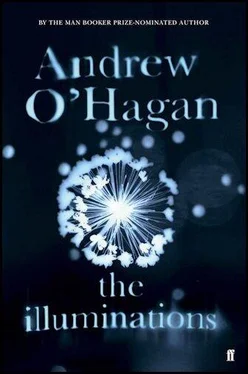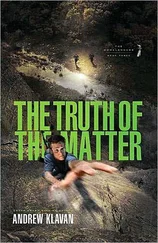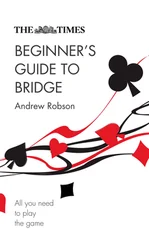‘What?’
‘That was it.’
‘You were happy?’
‘Yes.’
He spoke for a while about the early days when he thought he would live in London and write a book. For a summer he haunted Senate House and the reading room of the British Library.
‘Then you joined up.’
‘I did.’
‘Why didn’t you just stay in that world?’
‘It isn’t a world, Luke. People who read books aren’t reading them properly if they stop with the books. You’ve got to go out eventually and test it all against reality.’
‘You’re from another age.’
‘That’s what she said. What they all said. And I made the mistake once of thinking you were the same.’
‘I just missed my da’, Charlie. And I thought I could show the difference between right and wrong.’
‘We all did.’
‘That’s right. We all did.’
‘There was a generation of men wrecked by Ireland,’ Scullion said. ‘A fair few of us. I saw those dead construction workers in Teebane, the ones that were blown up by the IRA. I was young and I hoped at the time that I’d never see such carnage again. But time passes and I’ve seen more dead men than I ever imagined. Hundreds more. It makes you hard. I’ve been shot at from
buildings in places you don’t even know.’
He sat up straight and wiped his good eye. Luke imagined it was now trained only on the dark places.
‘You should go to India,’ Luke said. ‘Go if you can and look after yourself, Charlie.’
He put his head back on the pillows. ‘We never had children. We were too busy trying to work ourselves out and we missed the boat. We missed our chance. And maybe they would have been my cause. Maybe that’s what people do to …’
‘What?’
‘Gain a foothold. Make their own news.’
‘Maybe.’
‘She never forgave me. My army career was a nightmare to her and it killed our marriage.’
‘Maybe.’
It was obvious to Luke that something final was taking place. He tried with words and gestures to reassure his old boss, but his heart wasn’t in it, and his attitude clearly irked Scullion, who saw only disloyalty. Scullion suddenly winced: it was obvious the whole thing felt to him like pain, the dull unravelling of his command. Being unable to shout orders, he could only stammer, his bad temper entering in gasps.
‘You don’t know what I’m talking about, Campbell. What … what have you had?’ he asked. ‘Girlfriends? Silly girlfriends? You’ve never risked anything, never mind your happiness, never mind your legs.’
‘People get over things, Charlie.’
‘Good luck with that.’
A nurse and two men came in. ‘Time for your scan,’ the nurse said. ‘The porters will wheel you along.’ She started fussing with
wires and tubes and Luke stepped back. When he came forward again he placed a hand on the major’s arm.
‘You taught me things,’ he said.
‘Like what?’ Scullion said. ‘How to put trust in the wrong people? How to become a two-sided man?’
‘Maybe you’ll write something.’
‘Like what?’
‘I don’t know. You’re the one with the stories.’
‘History’s always told by the deputies,’ Scullion said. ‘Men like you. You’re just the right age for revenge.’ Luke stared at his old mentor. Decency or pity demanded that he allow the major the final insult.
‘Goodbye, sir.’
‘This is real life.’
‘Aye.’
Unspoken words softened the air. ‘Why don’t you wait here,’ Scullion said. ‘I won’t be long at this thing and you can just sit and wait for me.’ But Luke kept his eye on him as the bed turned and was sure the major understood they would never meet again. ‘My hand’s warm,’ Scullion said. ‘You don’t get this in your video games, sure you don’t, son.’ Luke felt the years slide away as the major withdrew his hand. A look of complete spite came into Charlie’s face and he blinked his crusted eye, then rested his head on the pillow as the bed moved off, steered by his new lieutenants. Luke could hear his old friend complain about the bumps as he vanished down the corridor, setting out on his long journey to India.
REALITY SHOW
Maureen was setting the table in the breakfast room and getting all het up about an episode of
EastEnders
Bloody napkins, she thought. The stress was too much, doing a lunch. It wasn’t even the whole family, but she didn’t do lunches. It was all because Esther was coming down from Edinburgh for one of her visits and she’d given her mother a stiff lecture on the phone about how normal it was, having your family round. Maureen felt it might be Esther’s idea of a Sunday but it wasn’t hers. It was a sheltered housing complex she lived in, not the Ritz.
Esther was like her father that way. She would just decide on a whim that everybody had to live according to new rules. Stanley used to come back from his jaunts, Maureen remembered, full of ideas about how they should eat more salad or start playing tennis. It would cause rifts between them that couldn’t be healed. The children could still remember the time their parents decided to buy a gas fire. They had arguments in every showroom in Ayrshire and collected dozens of leaflets. Every Saturday and Sunday for months was spent looking for a fire, but still they couldn’t agree and it somehow destroyed any good feeling between them. She wanted something plain like you might see in a modern office, and he wanted one with a flame, a novelty fire that could cheer you up. Their differences were silly but they became strangulating to the kids. Maureen then watched for bullying tactics in everything Stanley did: if he made a pot of soup, she would follow him around the kitchen with a damp cloth, cleaning the surfaces before he’d even had time to mess them up, pointing out how soup was his mother’s thing, waving away his cigarette smoke, his pleasures. Maureen was young then but she behaved as if her life
was a trial. And as Esther and her brothers grew up they realised their mother had never stopped being angry at their father. He was still a force of resistance for Maureen, a niggle, a source of objection that she couldn’t stand, and now, in her later years, his invisible fire still sent a chill over her living room.
Maureen was not at her best that Sunday. Her mind raced back and forth between bitterness and scorn, and lavishly, early that morning, she began to exert herself making sure the lunch would be difficult. Them with their Edinburgh dinner parties and what have you. Out of the blue they decide they want catering in the middle of the day, Maureen thought. ‘It’s not the kind of thing we do in Ayrshire,’ she whispered, ‘and I’ll be seventy on my next birthday. Them with their fancy cars and their pasta.’ Esther was always dropping little hints about how her father loved having them over to stay and how the new wife was into cookery books and growing her own tomatoes. Maureen liked to say the new wife would have her eyes opened one day.
She hadn’t seen Stanley for twenty-five years. Hadn’t clapped eyes on him. Yet she’d added to her dislike of him every day, now saying he hadn’t played a real part in the children’s lives, hadn’t got involved in all the struggles of bringing them up or setting them straight. She said Alexander’s drink problem was completely Stanley’s fault. She said Ian had never really worked himself out because he had no father to guide him. And Esther — don’t get me started, thought Maureen. Esther thinks it’s healthier to forgive the bad people than praise the ones who’ve been good to you. That’s Esther. Maureen held up one of the new spoons, polished it and then set it back down on the table. They pay her well as a therapist, she thought, to hurt her mother and pretend it’s all about honesty.
Читать дальше











